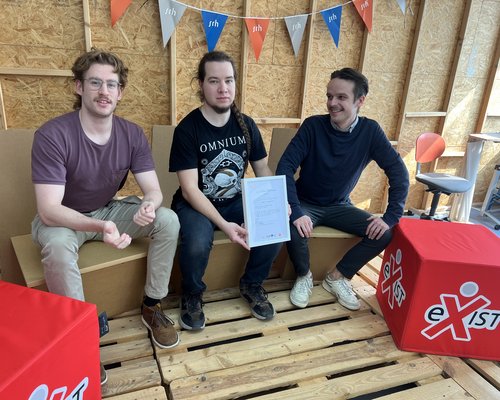
Advancing Laboratory Training with Virtual Reality at SRH University Heidelberg
In the ever-evolving landscape of scientific research and education, virtual reality (VR) has emerged as a powerful tool to enhance practical training, especially in laboratory settings. SRH University Heidelberg is at the forefront of this innovation, actively supporting a groundbreaking project that aims to revolutionize laboratory training through VR technology. The university’s recent success in securing an EXIST start-up grant underscores its commitment to fostering practical, sustainable, and accessible education solutions, particularly in fields like molecular biology and biomedical sciences.
Understanding the Virtual Reality Laboratory Training Initiative
The project, known as Wet-Lab-VR, seeks to create a realistic virtual environment where students and researchers can conduct laboratory experiments without the constraints of physical space or resource limitations. This immersion into a virtual wet lab allows users to practice handling laboratory equipment, perform experiments, and troubleshoot processes—mirroring real-world scenarios—with high fidelity and safety.
One of the core advantages of VR training is the ability to expand educational capacity. Traditional wet laboratories are limited by physical space and resources, often leading to bottlenecks in student training. With VR, multiple users can simultaneously access the same environment without resource waste, thus significantly increasing the number of students trained and optimizing laboratory utilization for research purposes.
Key Benefits of Virtual Reality Training in Molecular Biology
Enhanced Learning and Skill Acquisition
VR offers an interactive learning experience that is more engaging than conventional methods. Users can repeatedly perform experiments, receive immediate feedback, and learn at their own pace. This approach supports better retention of complex procedures such as pipetting, sample preparation, and molecular reactions—crucial skills in molecular biology and related fields.
Sustainability and Cost-Effectiveness
By digitizing laboratory procedures, VR training minimizes waste production associated with consumables like chemicals, reagents, and single-use containers. This aspect aligns with sustainable development practices, reducing the environmental impact and lowering costs for training institutions and students.
Increased Safety and Accessibility
Simulating experiments in VR removes the risks associated with handling hazardous materials, making training safer. Additionally, learners from diverse geographical locations gain equal access to high-quality practical education, breaking down barriers of distance and resource availability.
The Technology Behind Wet-Lab-VR: Combining Scientific Precision with Innovation
The Wet-Lab-VR platform incorporates sophisticated software infrastructure that simulates biochemical and molecular biological reactions. When students manipulate virtual reagents or adjust parameters like temperature, the system dynamically models biological processes, such as enzymatic reactions, pH tuning, and solvent interactions.
The integration of machine learning algorithms ensures realistic simulation outcomes that adapt to the specific laboratory environment. This flexibility allows the platform to be customized for various research fields and educational levels, from undergraduate courses to advanced research training.
Gamification elements, such as achievement badges, storytelling, and progress tracking, motivate users and enhance engagement. These features promote continuous learning and help students develop confidence in their technical skills.
Supporting Innovation: The Role of SRH University Heidelberg
SRH University Heidelberg’s Gründerinstitut has been instrumental in fostering startups and innovative projects since 2010. The university’s network and support structures enabled the collaboration with bioinformatician Gleb Gavrish and project manager Jonathan Wagner to develop Wet-Lab-VR.
Thanks to the EXIST start-up grant of €135,000, awarded for the period April 2025 to March 2026, SRH University Heidelberg will further refine and expand the VR platform. This funding is provided by the Federal Ministry for Economic Affairs and Climate Action (BMWK) and co-financed by the European Social Fund (ESF), supporting innovative startups in academia and beyond.
Opportunities for Students and Researchers
Students enrolled in molecular biology, biotech, and related disciplines at SRH University Heidelberg and partner institutions have a unique chance to engage with cutting-edge VR tools. These platforms not only improve the quality of practical education but also prepare students for future careers where digital literacy and virtual lab competency are increasingly essential.
Moreover, researchers can use VR to simulate experiments, pilot new protocols, or train team members—all within a controlled, risk-free environment. This pioneering approach aligns with the university’s broader strategy to incorporate digital innovations into scientific education and research.
Studying in Germany and Building a Future in Science
Germany is renowned for its strong academic infrastructure, especially in science and engineering. Studying at institutions like SRH University Heidelberg offers students access to state-of-the-art facilities, expert faculty, and innovative research projects such as Wet-Lab-VR. These experiences open pathways to careers in biotech firms, research institutes, and academia both within Germany and internationally.
Explore SRH University Heidelberg’s Programs Today
Whether you’re interested in bachelor’s, master’s, or specialized short courses, SRH University Heidelberg offers diverse study options across health sciences, engineering, economics, and digital innovation. Engage in hands-on learning, leverage cutting-edge research projects, and become part of Germany’s dynamic academic community.
Take the first step towards an enriching academic journey at SRH University Heidelberg in Germany. With Studygram by your side, get personalized support in choosing the right program, understanding admission requirements, and preparing your application. Fill out the form today and begin your journey toward academic excellence in Germany!


